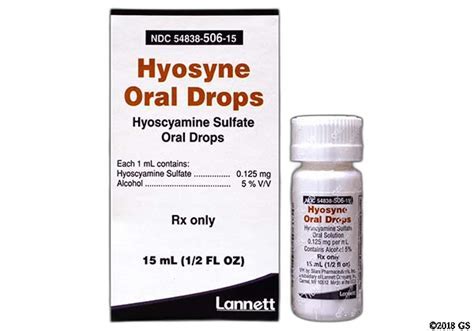How To Choose Hsa Or Fsa? Benefits Compared

When it comes to saving for healthcare expenses, two popular options are Health Savings Accounts (HSAs) and Flexible Spending Accounts (FSAs). Both offer tax benefits and can help individuals and families manage medical costs, but they have distinct differences in terms of eligibility, contribution limits, and usage rules. Understanding these differences is crucial to making an informed decision about which account type best suits your needs.
Eligibility and Enrollment
To be eligible for an HSA, you must be enrolled in a High-Deductible Health Plan (HDHP), which is a health insurance plan with a higher deductible than a traditional health plan. The deductible for an HDHP in 2023 is at least 1,500 for individual coverage and 3,000 for family coverage. On the other hand, FSAs are typically offered by employers as part of their employee benefits package and can be used with any type of health insurance plan. You do not need to have a specific type of health insurance to enroll in an FSA, but you must be an employee of a company that offers this benefit.
Contribution Limits and Rules
HSAs have higher contribution limits compared to FSAs. For 2023, the annual contribution limit for an HSA is 3,850 for individuals and 7,750 for families. In contrast, the annual contribution limit for an FSA is $2,850 for healthcare expenses. It’s also important to note that HSA contributions can be made by both employers and employees, while FSA contributions are typically made by employees through payroll deductions.
One significant difference between HSAs and FSAs is the requirement to use the funds within a specific timeframe. With an FSA, you generally must use the funds by the end of the plan year or within a short grace period (usually 2.5 months) at the beginning of the next plan year. If you do not use the funds within this timeframe, you will forfeit any remaining balance. This is often referred to as the “use-it-or-lose-it” rule. In contrast, HSA funds roll over from year to year, allowing you to save for long-term healthcare expenses without worrying about losing unused funds.
Usage of Funds
Both HSAs and FSAs can be used to pay for qualified medical expenses, which include a wide range of healthcare costs such as doctor visits, prescriptions, glasses, and dental care. However, HSAs offer more flexibility in terms of investment options. Once your HSA balance reaches a certain threshold (varies by provider), you can invest the funds in stocks, bonds, or mutual funds, allowing your money to grow over time. FSAs typically do not offer investment options; the funds are simply saved in a cash account.
Portability and Ownership
Another key difference between HSAs and FSAs is portability and ownership. An HSA is owned by the individual, not the employer. This means that if you change jobs or retire, the HSA goes with you. You can continue to contribute to it and use it for healthcare expenses without any restrictions related to your employment status. On the other hand, FSAs are owned by the employer and are generally not portable. If you leave your job, you usually cannot take your FSA with you, although you may be able to use any remaining funds for healthcare expenses incurred before your departure, depending on your employer’s plan rules.
Comparative Analysis
| Feature | HSA | FSA |
|---|---|---|
| Eligibility | Must have an HDHP | Typically offered by employers |
| Contribution Limit | 3,850 (individual), 7,750 (family) for 2023 | $2,850 for 2023 |
| Carryover | Funds roll over from year to year | “Use-it-or-lose-it” rule, with a possible short grace period |
| Investment Options | Can invest in stocks, bonds, mutual funds | Typically no investment options |
| Portability | Owned by the individual, fully portable | Owned by the employer, not portable |
| Usage | Can be used for qualified medical expenses, long-term savings | Can be used for qualified medical expenses |

Decision Framework
When deciding between an HSA and an FSA, consider the following factors:
- Health Insurance Type: If you have an HDHP, an HSA might be the better choice due to its higher contribution limits and investment options.
- Employment Status: If you expect to change jobs frequently, an HSA’s portability might be beneficial.
- Long-term Savings Goals: If you’re looking to save for long-term healthcare expenses, an HSA’s ability to roll over funds and invest them might be more advantageous.
- Current Healthcare Needs: If you anticipate high healthcare expenses in the short term and your employer offers an FSA, it might be a good option to cover these costs.
In conclusion, the choice between an HSA and an FSA depends on your individual circumstances, including your health insurance type, employment status, savings goals, and current healthcare needs. Understanding the benefits and limitations of each can help you make an informed decision that best suits your financial and healthcare planning needs.
It's essential to review the specific rules and offerings of both HSAs and FSAs, as they can change, and not all plans are created equal. Consulting with a financial advisor or a healthcare expert can provide personalized advice tailored to your situation.
What is the main difference between an HSA and an FSA?
+The main difference lies in their eligibility requirements, contribution limits, and the flexibility in using the funds. HSAs require enrollment in an HDHP and offer higher contribution limits and more flexibility in terms of investment options and carryover rules.
Can I have both an HSA and an FSA?
+Generally, if you have an HSA, you can only have a limited-purpose FSA (for dental and vision expenses) or a post-deductible FSA (which only reimburses expenses after the HDHP deductible is met). Having a general-purpose FSA and an HSA at the same time is not allowed, as it would violate the HSA eligibility rules.
How do I decide which is better for me, an HSA or an FSA?
+Consider your health insurance type, employment status, long-term savings goals, and current healthcare needs. If you have an HDHP and are looking for a long-term savings option with investment potential, an HSA might be better. If you expect high healthcare expenses in the short term and your employer offers an FSA, it could be the more beneficial choice.



